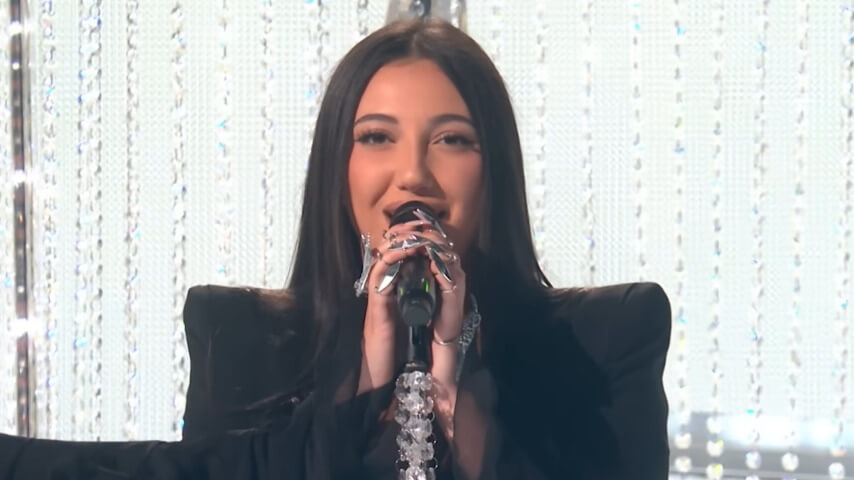Eurovision to hold vote on Israel's participation in next year's contest
Some participating broadcasters have pledged to boycott the competition if Israel is allowed to compete, while others have urged them to reconsider.
Screenshot: Eurovision Song Contest/YouTube
The film industry isn’t the only sphere of the entertainment world reckoning with its relationship with Israel right now. A tide of resistance has also been growing amid participants in the annual Eurovision Song Contest, an international music competition that has long billed itself as an apolitical event during which “nations can put aside political differences for one evening and unite in song,” per The New York Times. Some participating broadcasters feel that’s no longer possible. On Thursday, the European Broadcasting Union (EBU), which organizes the event, announced that it would host a rare general meeting in November, during which broadcasters will vote on whether to expel Israel from next year’s contest. In a letter to members (per NYT), EBU president Delphine Ernotte Cunci said the organization had “never faced a divisive situation like this before.”
The EBU has been under pressure to make some sort of decision for weeks now. Earlier this month, broadcasters from Spain, Ireland, and the Netherlands all vowed to withdraw from the competition if Israel was allowed to take part. “RTÉ feels that Ireland’s participation would be unconscionable given the ongoing and appalling loss of lives in Gaza,” the Irish broadcaster wrote in a statement earlier this month, which also stated that it was “deeply concerned by the targeted killing of journalists in Gaza, and the denial of access to international journalists to the territory, and the plight of the remaining hostages.” In an interview aired on Spanish broadcaster RTVE, its president, José Pablo López, also pushed back against Eurovision organizers’ claim that the event was apolitical. “We are all aware that the contest carries significant political implications,” he said. “The Israeli government is equally aware of this fact and leverages the event on the international stage.”
 Keep scrolling for more great stories.
Keep scrolling for more great stories.
